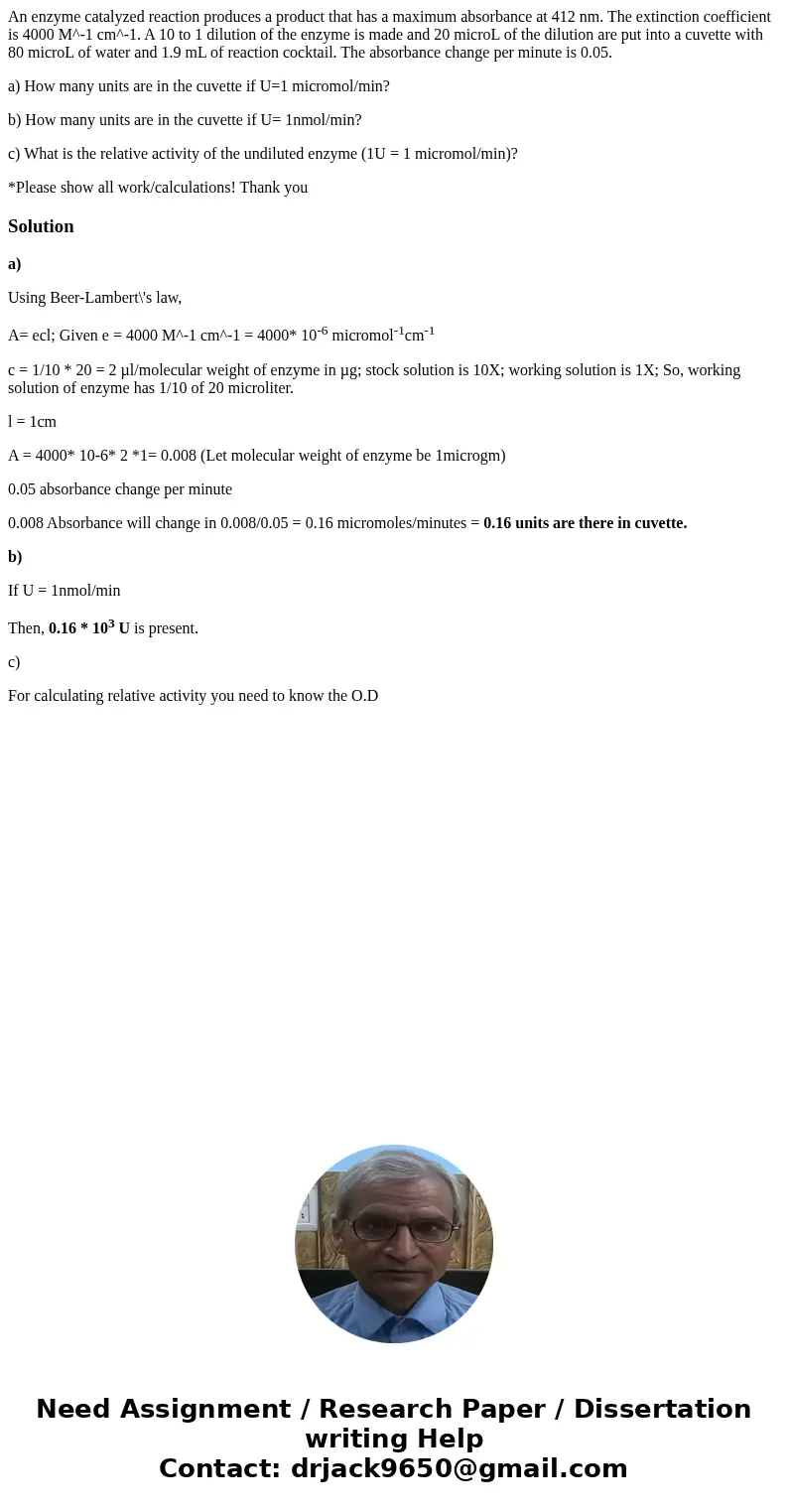An enzyme catalyzed reaction produces a product that has a m
An enzyme catalyzed reaction produces a product that has a maximum absorbance at 412 nm. The extinction coefficient is 4000 M^-1 cm^-1. A 10 to 1 dilution of the enzyme is made and 20 microL of the dilution are put into a cuvette with 80 microL of water and 1.9 mL of reaction cocktail. The absorbance change per minute is 0.05.
a) How many units are in the cuvette if U=1 micromol/min?
b) How many units are in the cuvette if U= 1nmol/min?
c) What is the relative activity of the undiluted enzyme (1U = 1 micromol/min)?
*Please show all work/calculations! Thank you
Solution
a)
Using Beer-Lambert\'s law,
A= ecl; Given e = 4000 M^-1 cm^-1 = 4000* 10-6 micromol-1cm-1
c = 1/10 * 20 = 2 µl/molecular weight of enzyme in µg; stock solution is 10X; working solution is 1X; So, working solution of enzyme has 1/10 of 20 microliter.
l = 1cm
A = 4000* 10-6* 2 *1= 0.008 (Let molecular weight of enzyme be 1microgm)
0.05 absorbance change per minute
0.008 Absorbance will change in 0.008/0.05 = 0.16 micromoles/minutes = 0.16 units are there in cuvette.
b)
If U = 1nmol/min
Then, 0.16 * 103 U is present.
c)
For calculating relative activity you need to know the O.D

 Homework Sourse
Homework Sourse